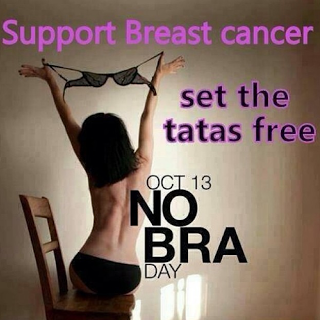
What is the purpose of your book “Closing the Gap: Understanding Your Service(wo)man?
The book’s title is “Closing The Gap: Understanding Your Serviceman” (woman). Its principal purpose is to reconnect military families with their non-military friends and family members. It is meant to help civilians learn more about the life within the military to better understand their own service member.
Fact is that there currently is a big divide between those who protect our freedoms and those who are being protected.
The book is meant to be part of a much bigger plan or picture: While I obviously do not have any high-profile impact on any decision makers, I do have access to everyday citizens. I believe that the key approach in closing this gap should be to utilize and strengthen the connections that ALREADY exist between the military and civilian worlds: the connections between military families and their OWN extended non-military families and non-military friends; which, in turn, might extend to a better understanding within the entire population.
Are there really differences between Military Families and Civilian Families?
I have seen and read through a L-O-T of forums that were trying to answer this very question. People get really passionate when it comes to defining themselves.
I personally believe that we, as military families, ARE different from non-military families, whether this difference is acknowledged or not. Different in many aspects, but mainly in the burdens we carry and the sacrifices we make as an entity, and we are simply different in the way we live.
Why is it important that others know/understand military families?
A very good question. You know, we love our own non-military friends and extended families. And BECAUSE we love them, we want them to be part of our lives. So it’s only understandable and natural that we also want them to UNDERSTAND our way of life.
BECAUSE the military is such a relatively small body right now, the more or less only remaining substantial connection that currently exists between the military and the rest of the American society is the one found between military members and their civilian families and friends. And that’s why we have to nourish this connection. And I believe we can do this best by helping them to learn more about us.
As for understanding from outside our own circles of friends and families, I believe knowing more about military families is important in that people only seem to support what they believe in and what they understand.
People need to understand the stresses military life imposes on the entire military family, not because we want pity, but because we want to instill a sense of shared sacrifice and share the emotional price we have to pay during difficult years.
It is all too easy to ask others to make certain sacrifices known only to military families, if the consequences of such are not understood. Adequate support needs to be provided, veteran benefits protected, military pay maintained, and retirement benefits upheld. All this is only possible with the public’s understanding.
So, understanding is especially important in times like this, where budget cuts need to be decided upon and implemented. Without the American citizens’ understanding of what their military is doing and sacrificing, it is much easier for them to support military budget cuts.
It is for those reasons that Americans’ support and understanding are more important than ever before. The level of understanding won’t ever truly be complete, of course. But, in my mind, even a tiny trace of understanding, a hint (if you will), is worth the effort (to try to promote understanding).
Why do you think there is a gap between military and civilian worlds?
Well, let’s see. As I wrote in my book, a smaller share of Americans currently serve in the Armed Forces than at any other given point in time since the Second World War. And I believe that this is the reason for this growing gap between people in uniform and the civilian population. Back in the day, most everyone in America had similar experiences regarding war, since most families had at least one individual within the Armed Forces due to draft laws and regulations. They all knew what it felt like to have someone out there risking their life for their country. War used to be something everyone was forced to live and endure. Everyone understood what it meant, how horrible it was, and why it should be avoided at all costs. But this is no longer the case.
Nowadays, most people outside a military installation have little understanding of what it means to send a loved one off to war. They don’t know what impact multiple deployments can have on service members, their spouses, and their children. Most of these people are not aware of this part of the population that serves their country. And the result is a military far less connected to the rest of society when compared to previous decades.
We currently live in a world where invisible wounds are considered imaginary, where separation from one’s better half is deemed normal and therefore not worthy of any sympathy. We live in a world, where record-high service member suicides are barely of anyone’s concern outside the military. And this current perception and lack of awareness needs to be changed.
Why this ambiguous title? Why not “Closing The Gap: Understanding Your SOLDIER,” for example?
Well, I have to admit that substituting the word “Serviceman” with “Soldier” would have made for a catchier title. But if I’d used the term “Soldier,” some Military Families might have been discouraged from reading this book, simply because they would have thought it only covered the Army and wouldn’t apply to THEIR branch, since the term “Soldier” is technically used to describe a service member within the Army only. But I wanted this book to appeal and apply to all families and friends of our service members out there, no matter what branch within our military. So that’s why I chose the more generic term “Serviceman.”
Was there a specific event, or series of events, in your life as a military spouse that made you realize this book was needed?
Most definitely. Many, really. And they pop up everywhere you go, if you pay attention to them.
Most of my civilian friends, for instance, are always amazed when they hear that our address has changed yet again. And then they usually ask, if we aren’t tired yet of all the moving around, and why we don’t just stay longer. Most believe that the frequency of our moves is dictated by the military family itself, rather than by the service member’s command.
Another very important reason that caused me to write this book was the fact that our civilian families and friends seemed to grow a bit resentful toward our chosen assignment locations over the past couple of years, simply because they don’t know what all plays into the decision-making process of the service member’s new duty station. Most assume that we get to choose where and whenever we want to move, which then causes them to believe that we voluntarily chose a place far away from them.
And then you always here questions like “So, when are you going to move again?” or “Where are you going to move to next?” Questions no one really knows the answers to, including ourselves. And that always seems so incomprehensible to people outside the military. The unpredictability of our lifestyle is simply beyond any of their own experiences that most civilians have a hard time imagining what our life really is like.
Was it difficult to get "outside" your military life to see the things that you needed to address, that civilians don't understand?
Not really. I knew what needed to be addressed in order to help our civilian families and friends understand our way of life a bit better. I mean, civilians more or less ask the same questions all the time, like “When are you going to move again?” and “Where are you going to move next?” So I knew I had to include something about the moving process and the assignment process, to help them see how things really work.
What WAS difficult, however, was to think of some issues that NEEDED to be addressed, but are never asked about by outsiders, simply because they don’t know about those differences. You can’t ask questions about something if you’re not even aware of its existence.
For example, in my book I write that it’s not very often that we’re asked to explain the DIFFERENCES between the military and the civilian lifestyles; and that this, in turn, might imply that civilians are simply not aware that there are distinctions between these two worlds.
Most people outside the military, for example, don’t realize that over the years we have created something that is referred to as a Military Culture, in which we share common beliefs and behaviors.
Another example of an issue that needed to be addressed, but is almost never asked about is the wellbeing of a military family AFTER the service member returns home from a deployment. Most assume that once the family is reunited, the hardest part of the deployment process is over; whereas in reality, those that actually HAVE experienced a deployment know that that’s the time where most problems for a military family begin.
These are all important issues, yet, they never get asked about simply because outsiders don’t know about their existence. And that’s where my book comes in. To draw attention to those problems and concerns, so that they can be discussed and talked about.
Buy Now @ Amazon
Genre – Military Family
Rating – G
More details about the author and the book
Connect with Yvonne Jones on Facebook















0 comments:
Post a Comment